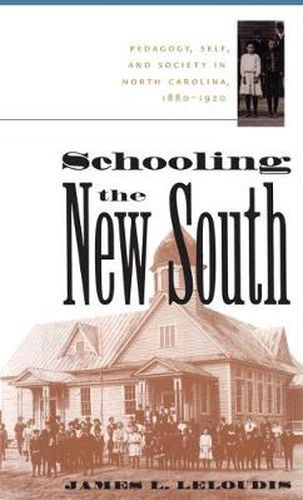Readings Newsletter
Become a Readings Member to make your shopping experience even easier.
Sign in or sign up for free!
You’re not far away from qualifying for FREE standard shipping within Australia
You’ve qualified for FREE standard shipping within Australia
The cart is loading…






Schooling the New South deftly combines social and political history, gender studies, and African American history into a story of educational reform. James Leloudis recreates North Carolina’s classrooms as they existed at the turn of the century and explores the wide-ranging social and psychological implications of the transition from old-fashioned common schools to modern graded schools. He argues that this critical change in methods of instruction both reflected and guided the transformation of the American South. According to Leloudis, architects of the New South embraced the public school as an institution capable of remodeling their world according to the principles of free labor and market exchange. By altering habits of learning, they hoped to instill in students a vision of life that valued individual ambition and enterprise above the familiar relations of family, church, and community. Their efforts eventually created both a social and a pedagogical revolution, says Leloudis. Public schools became what they are today–the primary institution responsible for the socialization of children and therefore the principal battleground for society’s conflicts over race, class, and gender.
$9.00 standard shipping within Australia
FREE standard shipping within Australia for orders over $100.00
Express & International shipping calculated at checkout
Schooling the New South deftly combines social and political history, gender studies, and African American history into a story of educational reform. James Leloudis recreates North Carolina’s classrooms as they existed at the turn of the century and explores the wide-ranging social and psychological implications of the transition from old-fashioned common schools to modern graded schools. He argues that this critical change in methods of instruction both reflected and guided the transformation of the American South. According to Leloudis, architects of the New South embraced the public school as an institution capable of remodeling their world according to the principles of free labor and market exchange. By altering habits of learning, they hoped to instill in students a vision of life that valued individual ambition and enterprise above the familiar relations of family, church, and community. Their efforts eventually created both a social and a pedagogical revolution, says Leloudis. Public schools became what they are today–the primary institution responsible for the socialization of children and therefore the principal battleground for society’s conflicts over race, class, and gender.